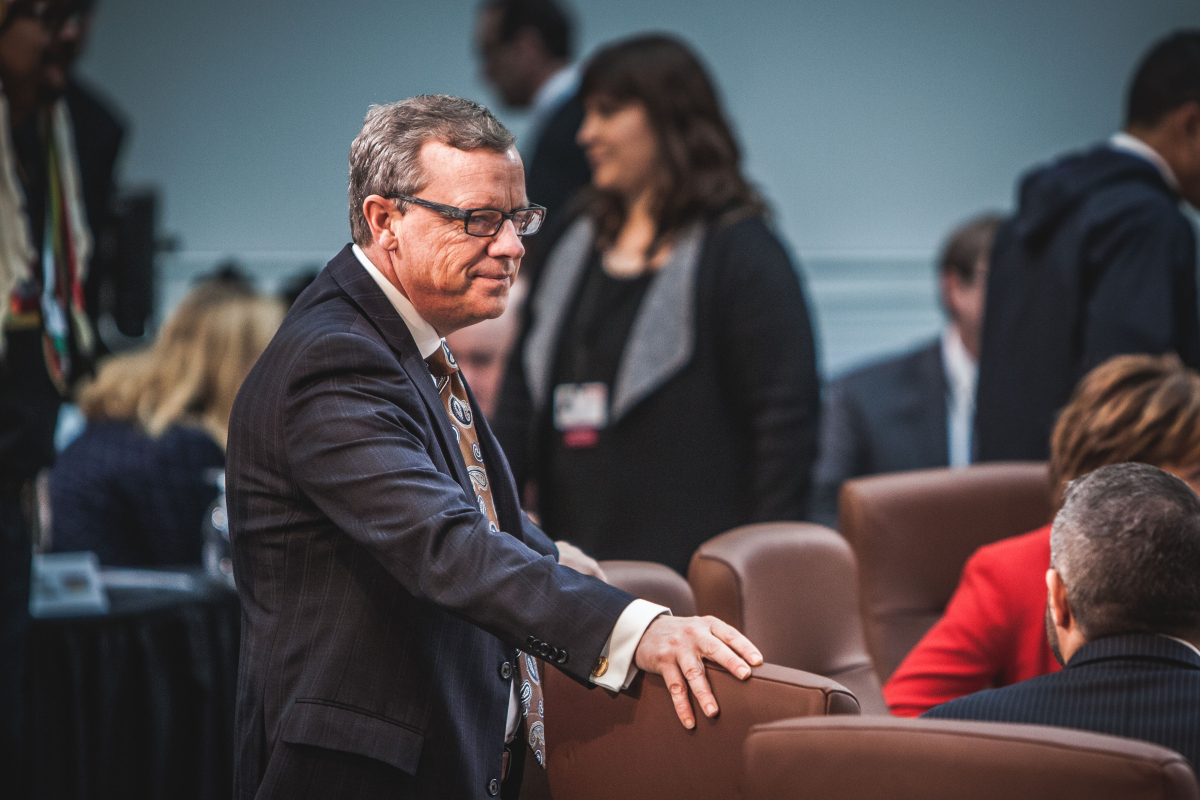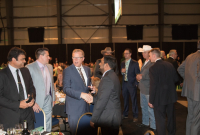Support strong Canadian climate journalism for 2025
One of the country’s most consistently popular premiers will be replaced this weekend and observers say it will be a struggle for the successful candidate to fill the former boss’s shoes.
Members of the governing Saskatchewan Party will pick a leader Saturday from a quartet of Brad Wall’s former cabinet ministers and one senior civil servant.
None can match Wall’s political charisma and few, if any, would be recognized outside the province. The winner will get the keys to a government that finds itself floundering after a decade of unbridled economic and electoral success.
"They are going to be measured. How do they compare to his leadership? And they are all going to come up wanting," says Ken Rasmussen, a professor in the Johnson Shoyama Graduate School of Public Policy at the University of Regina.
"None of them have his skills as a politician and none of them have the other advantage that he had, which is great economic circumstances."
Wall, 52, announced his retirement in August after a decade as premier. With his government hurting from an unpopular budget and stung by scandal, he pitched his departure as a chance for renewal.
The front−runners to replace him are widely thought to be former advanced education and environment minister Scott Moe, the premier’s former deputy minister Alanna Koch and Ken Cheveldayoff, who has bounced around cabinet portfolios since the Sask. Party formed government in 2007.
"I certainly like what the polls are saying, but I’m working like I’m five points behind," says Cheveldayoff, who, at almost $277,000 at the start of this month, had raised the most money — about $15,000 more than Koch.
Koch is trying to make the jump from her role as the province’s top civil servant to the premier’s office. Her resumé as a political organizer stretches back to the days of former Tory premier Grant Devine.
"I’ve worked for two premiers: one on the political side of government and one on the professional public−service side, so I know exactly what I’m signing up for," she says.
Moe has tried to position himself as a team−builder rather than someone who can replicate Wall’s style.
"I’m Scott Moe. I’m not Brad Wall and the other candidates are their own individual selves," he says. "The fact of the matter is we are different."
Observers have pegged former justice minister Gord Wyant and former social services minister Tina Beaudry−Mellor as long shots.
"There will be people who compare the next leader of this party, the next premier, to Brad," Wyant says. "But it’s important to remember that bringing renewal and bringing a fresh face to a government is good for a party from time to time."
Beaudry−Mellor says one of the key reasons she ran was to attract new members to the party and keep it relevant to urban voters.
"I’m a long shot and I’ve been an underdog in this race from the beginning. I am actually OK with that," she says. "But I think the message I have been sending has been resonating."
Tom McIntosh, head of politics and international studies at the University of Regina, says it’s been a low−key race.
"It’s been a very clear attempt by the party to manage this leadership ... in such a way that it seems to blunt any of the sharp edges that might be there."
There was controversy when some of the candidates spoke of their anti−abortion views to a group dedicated to electing anti−abortion politicians.
There have also been suggestions that the race has opened a rift between the liberal and conservative wings of the party, which was formed in the 1990s out of an alliance of Liberals and Progressive Conservatives.
Rasmussen says Wall was always able to bridge that gap, but "it is not entirely clear that any new leader will be able to do that."
Whoever wins will be dropped into a fiscal and political circumstance very different from the one Wall enjoyed during much of his tenure.
Low resource prices have led to large public deficits. Anger still lingers over a budget that raised taxes and made deep program cuts. An investigation into a government land deal is in the hands of out−of−province prosecutors and could lead to charges.
The Saskatchewan Party recently lost two Saskatoon byelections to the NDP. The government is locked in a fight with the federal Liberals over Saskatchewan’s refusal to bring in a carbon tax, and is feuding with Alberta over trade issues.
"With oil over $100 a barrel, it’s easy to be the nice guy and everybody’s friend," says Rasmussen. "Now that the money is not there, it’s proving to be a much bigger challenge.
"It’s a really difficult time to be a new premier in Saskatchewan and I think everything is up in the air."
— By Tim Cook in Edmonton with files from Bill Graveland





Comments